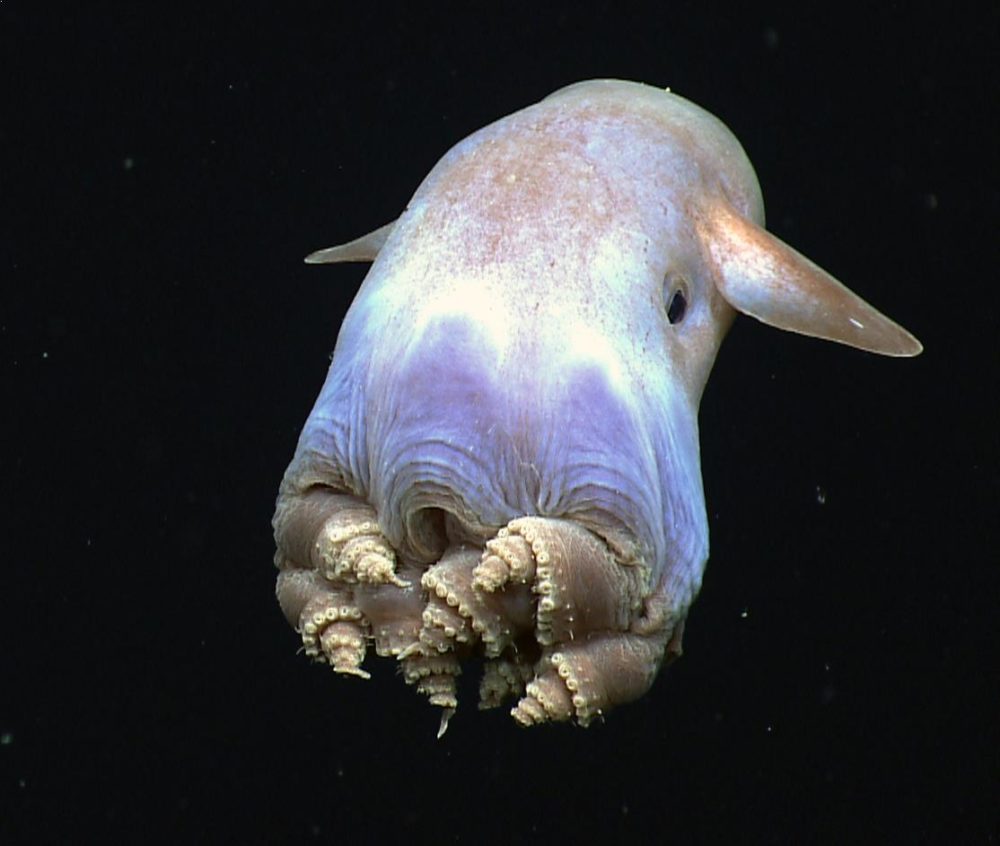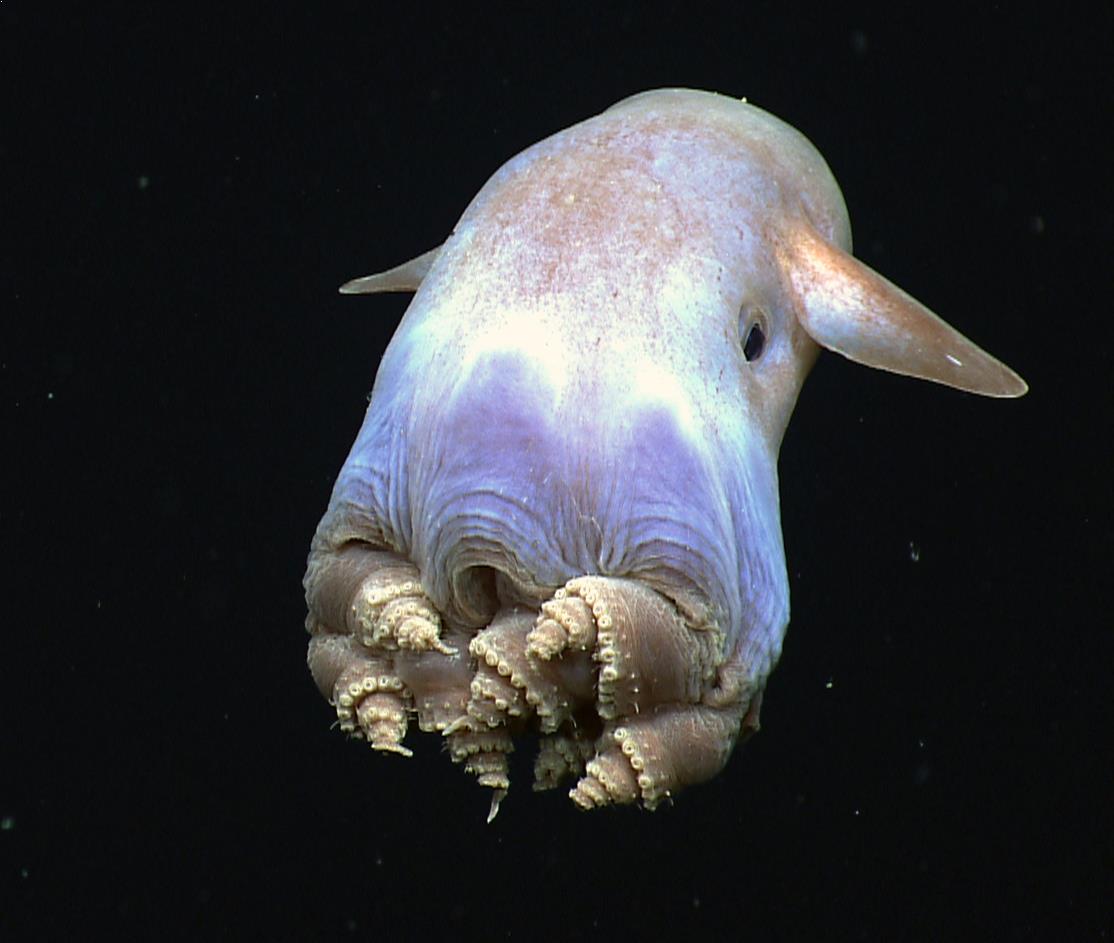The dumbo octopuses are of the deepest sea creatures that have eight muscular arms and two big flapping ears. The most surprising factor is that the tiny dumbo octopus looks exactly like his parents, however, it very small.Dumbo octopus usually live at a depth of 3,000 to 4,000 metres (9,800 to 13,100 feet).
The video has been attached at the end of the article and it’s adorable.The video of the baby octopus was taken in the year 2005 by Tim Shank, an ecologist at the Woods Hole Oceanographic Institution. Tim Shank recently uploaded the video of the newborn dumbo octopus and also published a research paper accompanying the video in the Journal Current Biology.
Image Source: Wikimedia
The study reveals that the baby dumbo octopuses behave just like adults even they are so small. They can very easily swim, survey their environment and detect chemical signals. Also, they can very easily catch its prey. Shank and his team found out that after 10 minutes of hatching, the baby octopus behaved like a fully grown adult.
Tim Shank said, “With each successive collection, it became apparent that this was some sort of an egg case,”. He also added, “The first few were open and empty, the next two contained a white gelatinous mass within, and the final collection yielded the specimen described in the paper.”
Lead author of the study, Elizabeth Shea, curator of mollusks at the Delaware Museum of Natural History said, “Once the fins were observed while the hatchling was still I Tim Shank said, “With each successive collection, it became apparent that this was some sort of an egg case,”. He also added, “The first few were open and empty, the next two contained a white gelatinous mass within, and the final collection yielded the specimen described in the paper.” n the bucket, it was clear that it was a ‘dumbo’ octopod.” Shea and her team found that the baby dumbo octopus immediately started showing adult-like behaviours after the hatching process.
“The virtual exploration and 3D reconstruction of the internal anatomy of this deep-sea creature were particularly revealing,” said zoologist Alexander Ziegler from Rheinische Friedrich-Wilhelms-Universität Bonn in Germany.
“I was impressed by the complexity of the central nervous system and the relative size of fins and the internal shell. However, for me as a zoologist, the most interesting aspect of our discovery remains the close interaction between the dumbo egg and the deep-sea coral host.”
The team’s paper has been published in Current Biology.


















